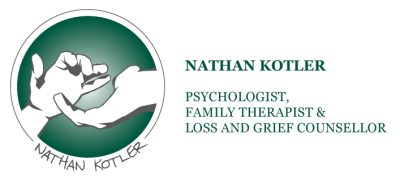Sex workers offer intimacy and connection for disabled clients in the age of the dating app
By Sarah Matthews, 12 Jul 2018.
Oliver Morton-Evans has sought the services of sex workers over the years, because dating can be especially tough for anyone with a disability.
Despite having tried “every dating app out there”, Oliver, 39, has never been in a long-term relationship.
The Sydneysider, now a successful tech entrepreneur, said despite looking for a partner ever since finishing high school, he has had no luck.
In the modern dating world, in which apps such as Tinder rely on appearance and snap judgements, Mr Morton-Evans said most people could not see past his wheelchair.
“It’s been really hard because I’m kind of always in a quandary of, ‘do I disclose my disability straight up or do I not?’,” he said.
“I kind of don’t want to, because although it’s a part of me it’s not all of who I am.
“The moment they see a wheelchair, people tend to create a story in their head of what that might mean.”
But he said visiting sex workers was not just about the physical pleasure.
“I have no shame or anything like that, but that’s just not what I most deeply desire,” he said.
“There’s so much more to sex than just the physical activity.”
Mr Morton-Evans said seeing sex workers provided him with the intimacy he craved in his everyday life, and motivated him to keep looking for a partner.
“I think for an able-bodied person they forget about how much, particularly touch for example … humans need touch to feel connected with others,” he said.
“So when I would see a sex worker, it tends to make me feel a lot more able to then go out and find the kind of relationship I want.”
Although often viewed as taboo, many people with disabilities seek the services of sex workers as an outlet for their sexual and intimate desires.
Brisbane escort Lisa said she regularly saw clients with disabilities and was proud to provide a service for people struggling to find intimacy in their everyday lives.
“I see this job as just an extension of the caring person that I am,” she said.
“Not everyone wants to have sex. They just want a bit of affection, or to chat to someone, all that sort of thing.
“It’s just me giving to the person what they need, and I feel that I’m doing a worthwhile job by helping other people.”
She said access to sexual services, especially for marginalised people, was vital for their health and wellbeing.
“It’s a genuine health issue,” she said.
“Like a baby needs affection, needs cuddles, needs touch, needs food, needs all these things [so too] an adult does.
“It doesn’t matter what age you are … it’s so basic of a human need.”
Noriel works as an escort and is the Cairns representative for Respect Inc, the Queensland sex worker support group.
She said she believed access to sex workers for people with disabilities should be covered under the NDIS.
“Whether you are a wage-earner or you’re on any type of benefit from the government, you have a right to spend your money however you want,” she said.
“And if you would like to spend your money hiring the services of a sex worker, I think you should be able to do that.”
Counsellor and registered NDIS provider Casey Payne said it was a common misconception that people with disabilities were non-sexual.
“Just because you live with something that’s different to everybody else doesn’t mean that your life can’t still be the same in every aspect, especially in sexual health.
“Everybody deserves the right to have a pleasurable, sexual, healthy life.”
Deakin University Associate Professor in disability and inclusion Dr Patsie Frawley said research had found people with disabilities were disproportionately affected by breast and cervical cancer — but also by sexually transmitted infection (STI).
“If you’re not seen as sexual and as a sexual person, the range of sexual health screenings, sexual health prevention and response services won’t be offered to you,” she said.
“It’s been identified in research that men with an intellectual disability have eight times greater rates of STIs than their non-disabled peers.”
Raivynn DarqueAngel has met the stereotypes of both sex workers and people with disabilities head on.
Raivyn, who has cerebral palsy and uses an electric wheelchair, has worked in Melbourne’s sex industry for more than 20 years, mostly as a dominant escort.
“I chose to be a dominant to … change perceptions,” she said.”
The submissive people that I see make me feel strong and in charge and I like that. I’ve taken it back home and I’m much more confident saying what I need with my support workers.
“It’s given me the confidence to trust that I’m worth my needs.”
Despite his disappointing dating experiences, Mr Morton-Evans insisted he had not given up on finding love.
He had one thing to say to potential partners: “Don’t judge a book by its cover.”
Leave a reply